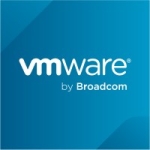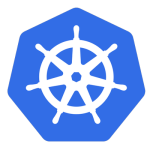What is our primary use case?
Our use cases for Amazon EKS include deploying and managing microservice-based applications, where Kubernetes excels at orchestrating microservices and Amazon EKS handles the heavy lifting of managing the control plane. We also use it for application modernization such as migrating legacy applications to containers and for hybrid and multi-cloud deployments, running Kubernetes workloads across on-premise and cloud environments. Additionally, we run secure and compliant workloads that require strict security and compliances, utilizing AWS IAM, VPC, and security services.
Furthermore, we leverage CI/CD pipelines to automate build, test, and deployment processes, and for machine learning, we implement SageMaker.
What is most valuable?
The most valuable features of Amazon EKS are the managed Kubernetes control plane, where AWS handles the provisioning, scaling, and maintenance, ensuring high availability and automatic patching. Integrations with AWS services offer seamless access such as IAM for access control, CloudWatch for monitoring, ELB and ALB for load balancing, and storage options including EBS, EFS, and S3. In terms of security and compliance, we utilize fine-grained access control through IAM role service accounts, support for private clusters, and network policies.
Amazon EKS supports both EC2 for full control over nodes and Fargate for serverless Kubernetes pods.
The positive impacts I have seen from using Amazon EKS include enhanced security and compliance with a managed control plane, automatic patching, updates, IAM integration for secure access to AWS services, private clusters, network policies, and encryption options. Additionally, I experience operational efficiency, scalability, performance, developer productivity, flexibility, portability, and observability and monitoring through CloudWatch, Prometheus, Grafana, and OpenTelemetry, which assists in troubleshooting issues and optimizing resources, ultimately leading to cost optimization.
What needs improvement?
Areas for improvement within Amazon EKS include the management of infrastructure. Prior to using Amazon EKS, we handled manual provisioning, patching, and scaling of our Kubernetes cluster, but now AWS manages control plane operations, automatic patching, and scaling, which has reduced our operational burden and resulted in fewer infrastructure-related incidents.
I believe only operational management could be improved in the next releases of Amazon EKS.
What do I think about the stability of the solution?
When it comes to stability and reliability in Amazon EKS, the reliability of the control plane managed by AWS is paramount, running across three availability zones in each region to ensure high availability and fault tolerance. AWS also automatically manages the scalability and health of crucial components such as the Kubernetes API server and etcd cluster. We have options for worker nodes, including auto mode, Fargate, managed node groups, and self-managed nodes, ensuring data plane reliability.
Buyer's Guide
Amazon EKS
October 2025
Learn what your peers think about Amazon EKS. Get advice and tips from experienced pros sharing their opinions. Updated: October 2025.
872,706 professionals have used our research since 2012.
What do I think about the scalability of the solution?
Regarding scalability in Amazon EKS, we see managed node groups and Fargate profiles, where we can automatically scale the number of EC2 instances in a node group using Cluster Autoscaler or Karpenter. For serverless pods, Amazon EKS can scale without managing EC2 nodes, and we can utilize horizontal pod auto-scaling based on CPU, memory, or custom metrics, along with support for cluster limits, multi-cluster, and multi-region load scalability.
Amazon EKS is highly scalable, showing improvement in areas such as infrastructure management, security, and cost efficiency, with features such as auto-scaling for pods and nodes, making it suitable for bursty and high-demand workloads.
Which solution did I use previously and why did I switch?
Before using Amazon EKS, we relied on self-managed Kubernetes on EC2 as well as Docker Swarm for our workloads.
We decided to switch from Docker Swarm to Amazon EKS because it is a managed service that simplifies the handling of complex scalable and modern application workflows.
How was the initial setup?
Setting up Amazon EKS for the first time involves prerequisites such as installing and configuring the Amazon CLI, then installing `kubectl`, and while `eksctl` is optional, I install it for easier setup. IAM permissions are also needed to create EKS resources.
My experience with the initial setup has been straightforward, and I did not face any challenges so far, especially with `eksctl`, although there are common challenges such as IAM role configuration, network complexity, and cluster access control.
What was our ROI?
We have managed to estimate savings of around 20 to 40% using Amazon EKS, specifically achieving savings on Fargate ranging from $30 to $45 per month based on our usage.
What's my experience with pricing, setup cost, and licensing?
I consider Amazon EKS to be an affordable product overall.
Which other solutions did I evaluate?
Before choosing Amazon EKS, I did not evaluate other solutions as I found it to be the best one for us after checking the market.
What other advice do I have?
The integration of Amazon EKS with IAM enhances our authentication process as IAM users or roles can be granted access to the Kubernetes API server, managed via the AWS Auth ConfigMap in the EKS cluster, allowing us to map IAM roles or users to Kubernetes RBAC roles.
When it comes to Amazon EKS integrating IAM into application development, we utilize IAM roles for service accounts that allow our application pods to securely access services such as S3 and DynamoDB without storing credentials. We first create a Kubernetes service account and associate it with IAM roles using annotations, enabling the pod to use this role to access AWS services via temporary credentials, providing a significant developer benefit by eliminating the need to manage secrets manually and ensuring access is secure and scoped per pod.
The benefits of Amazon EKS's automated patching feature for our Kubernetes clusters primarily include improved security through the automatic application of critical security patches to the control plane and worker nodes, which reduces exposure to known vulnerabilities such as CVEs and ensures compliance with security standards. A second benefit is the reduction of operational overhead, and thirdly, enhanced cluster stability, minimized downtime, and consistency across environments. With intelligent patch management, Amazon EKS often tests patches before release.
When it comes to managing complex workflows effectively on Amazon EKS, I find that it simplifies infrastructure management by abstracting away the complexity of managing Kubernetes control planes, allowing us not to worry about patching, scaling, or securing the master nodes. It also supports scalability for high-demand applications with auto-scaling features for both pods and nodes and provides enterprise-grade security.
I utilize the AWS EKS official documentation, accessible via docs.aws.amazon.com.
My impression of the documentation is that it is very easy to learn from scratch, making it accessible even for beginners, as it is comprehensive, well-structured, and production-ready. Especially for developers and DevOps engineers such as myself, we find the user guide, best practice guide, API reference, CI tools, and workshops to be highly reliable, developer-friendly, scalable, and flexible for deployment needs.
On a scale of 1-10, I rate Amazon EKS an 8.
If public cloud, private cloud, or hybrid cloud, which cloud provider do you use?
Amazon Web Services (AWS)
Disclosure: My company does not have a business relationship with this vendor other than being a customer.






















